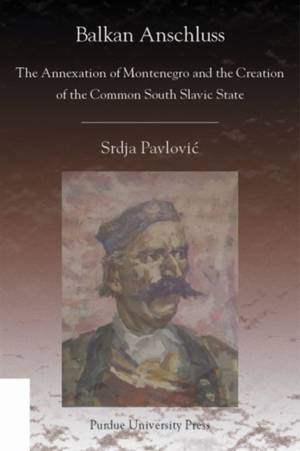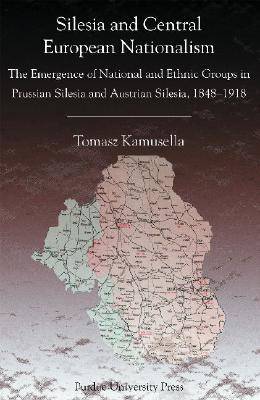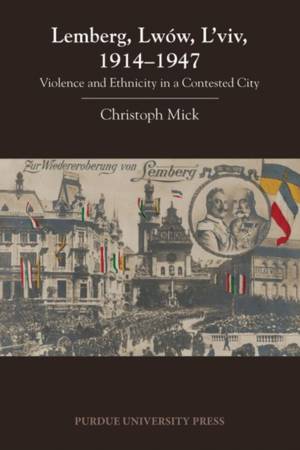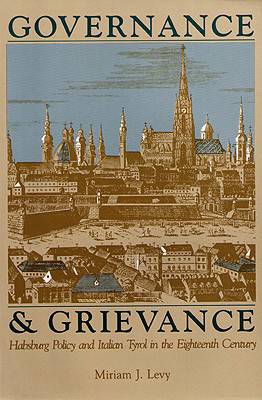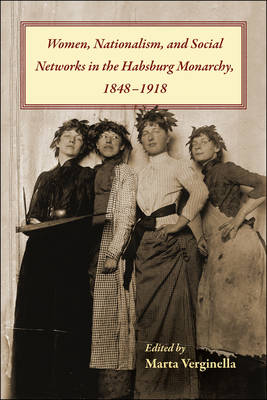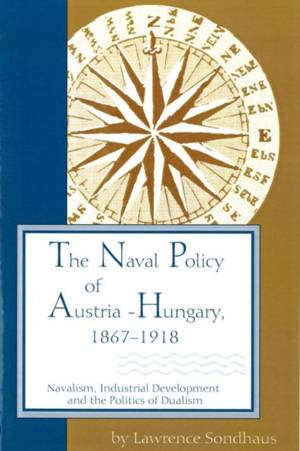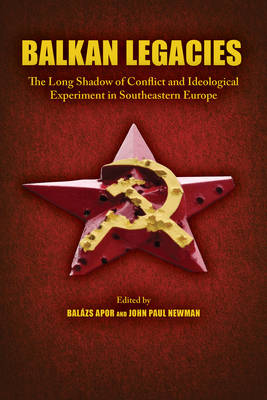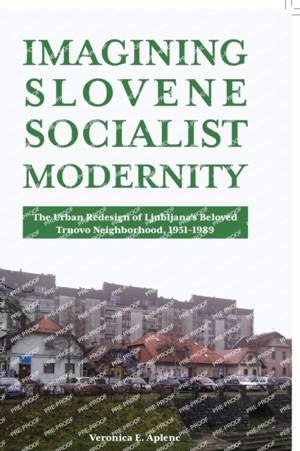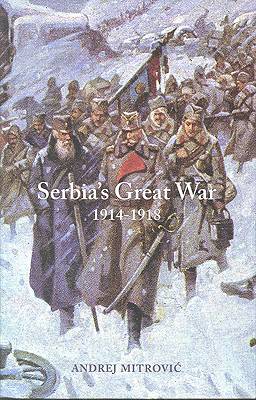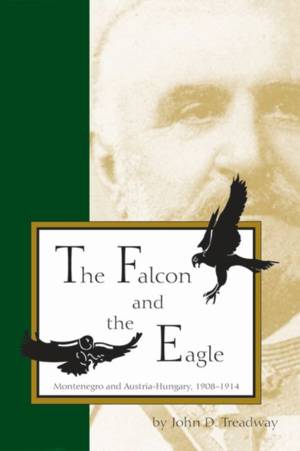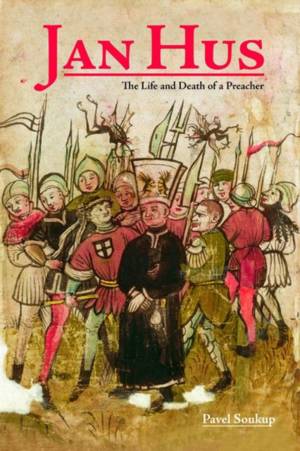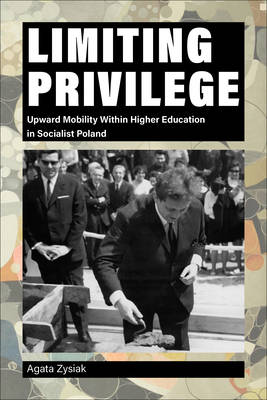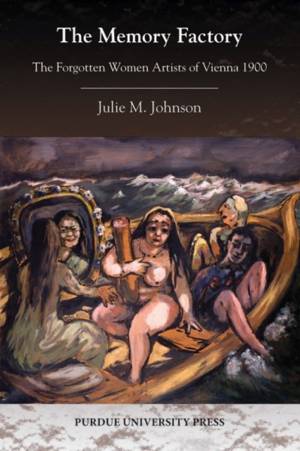
- Retrait gratuit dans votre magasin Club
- 7.000.000 titres dans notre catalogue
- Payer en toute sécurité
- Toujours un magasin près de chez vous
- Retrait gratuit dans votre magasin Club
- 7.000.0000 titres dans notre catalogue
- Payer en toute sécurité
- Toujours un magasin près de chez vous
Résultats pour "Central European Studies"
-
Balkan Anschluss
Srdja Pavlovic
- Livre broché | Anglais | Central European Studies
- Balkan Anschluss tackles the thorny issue of the disappearance of Montenegro as a sovereign state in the course of and as a result of the First World ... Savoir plus
59,45 €Livraison 2 à 3 semaines59,45 €Livraison 2 à 3 semaines -
Silesia and Central European Nationalisms
Tomasz Kamusella
- Livre broché | Anglais | Central European Studies
- This book analyzes the problems of nation building in the Central European region of Silesia in 1848 to 1918. The German ethnic model of nation buildi... Savoir plus
67,95 €Livraison 2 à 3 semaines67,95 €Livraison 2 à 3 semaines -
The Politics of Ethnic Survival
Gary B Cohen
- Livre broché | Anglais | Central European Studies
- This book examines how one of Imperial Austria's principal ethnic conflicts, that between Czechs and Germans, developed in one of the major cities dur... Savoir plus
59,45 €Livraison 2 à 3 semaines59,45 €Livraison 2 à 3 semaines -
Lemberg, Lwów, l'Viv, 1914 - 1947
Christoph Mick
- Livre broché | Anglais | Central European Studies
- Known as Lemberg in German and Lwów in Polish, the city of L'viv in modern Ukraine was in the crosshairs of imperial and national aspirations for much... Savoir plus
67,95 €Livraison 2 à 3 semaines67,95 €Livraison 2 à 3 semaines -
Center Stage
Philipp Ther
- Livre broché | Anglais | Central European Studies
- Grand palaces of culture, opera theaters marked the center of European cities like the cathedrals of the Middle Ages. As opera cast its spell, almost ... Savoir plus
67,95 €Livraison 2 à 3 semaines67,95 €Livraison 2 à 3 semaines -
Governance and Grievance
Miriam J Levy
- Livre broché | Anglais | Central European Studies
- Governance and Grievance touches on various aspects of Habsburg domestic policy, focusing on how the rulers influenced and were influenced by developm... Savoir plus
33,95 €Livraison 2 à 3 semaines33,95 €Livraison 2 à 3 semaines -
Women, Nationalism, and Social Networks in the Habsburg Monarchy, 1848-1918
- Livre relié | Anglais | Central European Studies
- Women, Nationalism, and Social Networks in the Habsburg Monarchy, 1848-1918 focuses on the lives of women in Southeastern Europe during the nineteenth... Savoir plus
169,95 €Livraison 2 à 3 semaines169,95 €Livraison 2 à 3 semaines -
The Naval Policy of Austria-Hungary, 1867-1918
Lawrence Sondhaus
- Livre broché | Anglais | Central European Studies
- This detailed study charts the uneven growth of the Austrian navy from its high point following Archduke Ferdinand Max's administration and the War of... Savoir plus
38,45 €Livraison sous 1 à 4 semaines38,45 €Livraison sous 1 à 4 semaines -
Balkan Legacies
- Livre relié | Anglais | Central European Studies
- Balkan Legacies is a study of the aftermath of war and state socialism in the contemporary Balkans. The authors look at the inescapable inheritances o... Savoir plus
169,95 €Livraison 2 à 3 semaines169,95 €Livraison 2 à 3 semaines -
Apple of Discord
Ian D Armour
- Livre broché | Anglais | Central European Studies
- When seeking the origins of World War I, the chain of events in the late nineteenth century that led to the breakdown of relations between Austria-Hun... Savoir plus
67,95 €Livraison 2 à 3 semaines67,95 €Livraison 2 à 3 semaines -
Przemyśl, Poland
John E Fahey
- Livre relié | Anglais | Central European Studies
- Przemyśl, Poland: A Multiethnic City During and After a Fortress, 1867-1939 examines the economic, political, demographic, and cultural ramifications ... Savoir plus
169,95 €Livraison 2 à 3 semaines169,95 €Livraison 2 à 3 semaines -
Hugo von Hofmannsthal and the Austrian Idea
David S Luft
- Livre broché | Anglais | Central European Studies
- The Austrian writer Hugo von Hofmannsthal (1874-1929) was one of the great modernists in the German language, but his importance as a major intellectu... Savoir plus
42,45 €Livraison 2 à 3 semaines42,45 €Livraison 2 à 3 semaines -
Imagining Slovene Socialist Modernity
Veronica E Aplenc
- Livre broché | Anglais | Central European Studies
- After the Second World War, Yugoslavia's small regional cities represented a challenge for the new socialist state. These cities' older buildings, loc... Savoir plus
93,45 €Livraison 2 à 3 semaines93,45 €Livraison 2 à 3 semaines -
Serbia's Great War
Andrej Mitrovic
- Livre relié | Anglais | Central European Studies
- Mitrovic's volume fills the gap in Balkan history by presenting an in-depth look at Serbia and its role in WWI. The Serbian experience was in fact of ... Savoir plus
118,95 €Livraison 2 à 3 semaines118,95 €Livraison 2 à 3 semaines -
The Charmed Circle
Rebecca Gates-Coon
- Livre broché | Anglais | Central European Studies
- In late eighteenth-century Vienna a remarkable coterie of five aristocratic women, popularly known as the "five princesses," achieved social preeminen... Savoir plus
67,95 €Livraison 2 à 3 semaines67,95 €Livraison 2 à 3 semaines -
Falcon and Eagle
John D Treadway
- Livre broché | Anglais | Central European Studies
- Treadway's work is the first comprehensive study of Montenegro's relations with her Great-Power neighbors on the eve of WWI. Savoir plus
32,45 €Livraison 1 à 2 semaines32,45 €Livraison 1 à 2 semaines -
Jan Hus
Pavel Soukup
- Livre broché | Anglais | Central European Studies
- Jan Hus was a late medieval Czech university master and popular preacher who was condemned at the Council of Constance and burned at the stake as a he... Savoir plus
84,95 €Livraison 2 à 3 semaines84,95 €Livraison 2 à 3 semaines -
Limiting Privilege
Agata Zysiak
- Livre broché | Anglais | Central European Studies
- State socialism tried to industrialize, urbanize, encourage the more frequent washing of hands, urge people to leave the church, emancipate women, and... Savoir plus
93,45 €Livraison 2 à 3 semaines93,45 €Livraison 2 à 3 semaines -
Seize the Book, Jail the Author
Paul S Spalding
- Livre relié | Anglais | Central European Studies
- Under the patronage of two south German nobles, Johann Lorenz Schmidt published an annotated translation of the Bible's opening books in 1735. The sto... Savoir plus
33,95 €Livraison 2 à 3 semaines33,95 €Livraison 2 à 3 semaines -
Staging the Past
Maria Bucur, Nancy M. Wingfield
- Livre broché | Anglais | Central European Studies
- This volume contains three sections of essays which examine the role of commemoration and public celebrations in the creation of a national identity i... Savoir plus
42,45 €Livraison 2 à 3 semaines42,45 €Livraison 2 à 3 semaines -
Finding Order in Diversity
Scott Berg
- Livre relié | Anglais | Central European Studies
- Finding Order in Diversity: Religious Toleration in the Habsburg Empire, 1792-1848 covers the tumultuous period in the Habsburg Empire from Joseph II'... Savoir plus
169,95 €Livraison 2 à 3 semaines169,95 €Livraison 2 à 3 semaines -
Transleithanian Paradise
Howard N Lupovitch
- Livre relié | Anglais | Central European Studies
- Transleithanian Paradise: A History of the Budapest Jewish Community, 1738-1938 traces the rise of Budapest Jewry from a marginal Ashkenazic community... Savoir plus
169,95 €Livraison 2 à 3 semaines169,95 €Livraison 2 à 3 semaines -
State Collapse in South-Eastern Europe
- Livre broché | Anglais | Central European Studies
- This multidisciplinary approach explores the historical antecedents and the dynamic process of Yugoslavia's violent dissolution. The volume, a compila... Savoir plus
84,95 €Livraison 2 à 3 semaines84,95 €Livraison 2 à 3 semaines -
The Memory Factory
Julie M Johnson
- Livre broché | Anglais | Central European Studies
- The Memory Factory introduces an English-speaking public to the significant women artists of Vienna at the turn of the twentieth century, each chosen ... Savoir plus
59,45 €Livraison 2 à 3 semaines59,45 €Livraison 2 à 3 semaines





